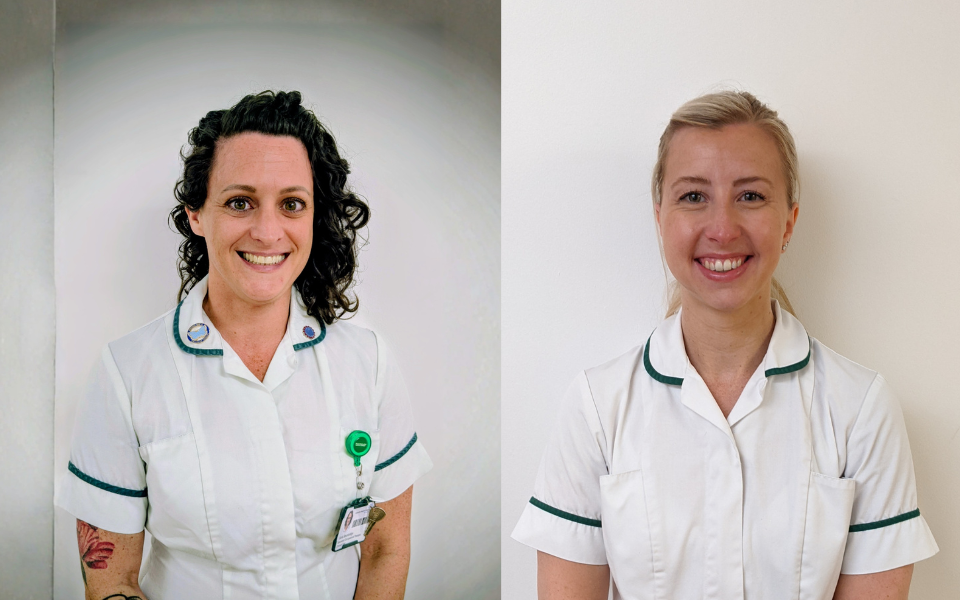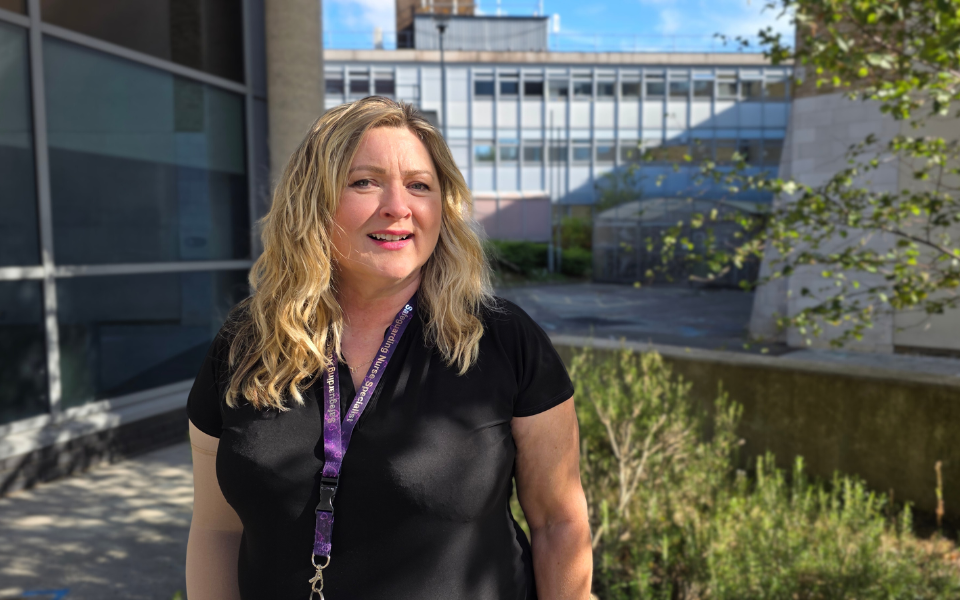
Nursing | HCAs | Career Development and Education
From HCSW to Safeguarding Specialist: Donna’s 30-Year Journey of Growth at UHS
Donna didn’t set out to work in healthcare. In fact, she wasn’t sure what she wanted to do at all.
After doing well in school and college, the world was her oyster, full of opportunities and options. Donna tried various roles but didn’t feel like they quite fit, but after the birth of her first child, it prompted her to look for something more stable and meaningful.
That search led her to University Hospital Southampton (UHS), where she joined as a Healthcare Support Worker (HCSW) in 1995. At the time, she thought it might be a temporary role, but after two weeks on the job, she knew this role was for her.
And thirty years later, she’s working as a Senior Safeguarding Clinical Nurse Specialist, leading a unique service for young people and shaping the future of safeguarding education across the Trust.
Discovering a Passion for Care
Donna’s first role was as a Healthcare Support Worker on a thoracic surgery ward. It was her first experience in healthcare, and within just two weeks, she knew she’d found something that felt right. The pace was fast, the work was hands-on, and the variety kept her engaged. Every day was different; even when patients stayed for several days, there was always something new to learn or do. “It was the kind of job that made me want to come in each day,” she said, not just because of the work, but because of the people.
She quickly found herself drawn to the human side of healthcare. The conversations, the small acts of kindness, the chance to make someone feel seen and cared for. That sense of connection and purpose was something she hadn’t felt in any of her previous roles.
After seven years, Donna moved to Cancer Care, where even though the role was the same, the environment and responsibilities were different. It was here, she was encouraged to complete her NVQ3 in Care. A qualification that would deepen her understanding and open new doors to progress.
Through her NVQ3, Donna started to see her role in a new light. It wasn’t just about doing the job; it was about understanding the reasons behind each action. She realised that something as routine as helping a patient wash could be an opportunity to check for skin issues, preserve dignity, and build trust. Even policies she once saw as formalities, like wearing the correct uniform, took on new meaning as part of creating a safe and respectful environment. As she reflected, “It’s not just about doing the task… it’s understanding how important that is.”
Learning While Earning
As her confidence grew, so did her curiosity. Donna returned to cardiac care, this time in a pre-assessment role, where she began developing more advanced clinical skills such as taking blood, inserting cannulas and supporting patients through their surgical journey. It was a turning point in her career. “It made me feel really nursy”, she said, reflecting on how those hands-on experiences helped her see herself as more than just a Support Worker.
Around that time, an opportunity came up to study with the Open University, a route that would allow Donna to train as a nurse while continuing to work and support her family. It was a turning point. As she explained, “It was fully funded, I could still keep my job, my wages… I just had to do some hard work to become a qualified nurse. What was there not to love?”
The programme was structured much like today’s apprenticeships, blending study days, placements, and on-the-job learning. It gave Donna the flexibility she needed as a working parent with a mortgage, and the chance to grow professionally without stepping away from her role. She was able to apply new knowledge on the ward and in the classroom, building confidence and gaining clarity with every shift.
Four years later, she qualified as a Registered Nurse with a diploma and a renewed sense of purpose. This wasn’t the traditional route into nursing, but the right one for her. “We still had to meet all the requirements to be a registrant on the NMC register,” she explained. “Our method was just different.”
Stepping into Leadership
Donna continued to explore new areas of care, working in cardiac short stay and later moving to women’s surgery. When personal circumstances meant she could no longer work night shifts, she took the role in pre-assessment, an area she already knew well from her time as a Senior Healthcare Support Worker. Her familiarity with the service helped her settle quickly, and within six months, a job opportunity became available. “I’d only been qualified two years and I’d only been in the clinic six months,” she recalled. “But I applied, and I got it.”
Stepping into leadership was a steep learning curve, but Donna embraced it. She completed an intermediate management course and began reshaping the services, introducing Nurse-led clinics and streamlining processes to improve patient flow. “I worked my little socks off,” she laughed, “to get all of us educated and qualified in doing history taking and physical examination as Nurses.”
Her drive to support others continues as she moved into Research and Development, where she led a struggling team through a period of transformation. She introduced weekly team lunches to boost morale, revamped the office environment, and helped team members build the confidence to apply for promotions. “They all had so much improved self-esteem that they got better jobs,” she said. “I took that as a compliment.”
Finding Her Calling in Safeguarding
Donna’s next opportunity came unexpectedly through a Trust-wide email advertising a role in the safeguarding team. To begin with, she was hesitant. Like many, she found the idea of safeguarding daunting. But something about the way the role was described resonated with her, so she arranged an informal chat with the team, “I just came out of there thinking, actually, do you know what? That is what I want to do,” she said. “That’s my passion.”
She joined the team and quickly identified a gap in support for 16–25-year-olds, a group often caught between children’s and adult services. Drawing on her nursing experience and passion for advocacy, she developed the Transition Safeguarding Service, which she now leads. Reflecting on the work, she shared, “I absolutely love this age range, you have to be imaginative, think on your feet, and really empower them.”
Her role is both operational and educational. As a Senior Safeguarding Clinical Nurse Specialist, she supports complex cases across the Trust and also leads safeguarding training for staff. It’s a role that demands empathy, creativity, and quick thinking.
Championing Education and Growth
Alongside her safeguarding work, Donna also leads safeguarding education across UHS. She designs and delivers training for staff at all levels, helping them understand how to protect and empower vulnerable patients. It’s a role she’s grown into naturally, having always been passionate about teaching and mentoring. “Teaching others to safeguard people is just phenomenal,” she said. “And I still practise what I preach.”
She’s also currently completing a postgraduate apprenticeship in education leadership, building on her experience as an Open University tutor. It’s another step in a career shaped by continuous learning.
For Donna, education isn’t just about formal qualifications but about mindset. “There’s always a learning opportunity every single day in this Trust,” she said. Whether it’s shadowing a colleague, listening to a patient, or reflecting on a tough shift, she believes growth is always possible. That belief has guided her journey from Healthcare Support Worker to Senior Safeguarding Clinical Nurse Specialist, and it’s something she encourages others to embrace: stay curious, stay open, and never stop learning.
A Culture of Support
From her very first role as a Healthcare Support Worker, Donna has felt supported by UHS, not just in her career development, but in balancing work and family life. Whether it was adjusting shifts, changing study days to fit around teaching, or negotiating flexible hours, she’s always found managers willing to listen and adapt.
Starting with no formal healthcare qualifications, she’s grown into a Senior Nurse, Educator, and Advocate, all within the same organisation. The HCSW role gave her the foundation to build clinical skills, confidence, and a deep understanding of patient care. With the right mindset and the backing of a supportive team, she believes anyone can progress. “If you’re open to opportunities,” she said, “there’s always something to learn, always someone to learn from.”
Advice for Anyone Considering Healthcare
Donna’s advice to anyone thinking about a career in healthcare, especially as a Healthcare Support Worker, is simple: give it a go. “If you don’t give it a go, how are you ever going to know?” she said. She knows from experience that you don’t need qualifications or clinical experience to begin, just a willingness to learn, ask questions, and care.
The HCSW role offers a unique chance to build confidence, develop hands-on skills, and discover what kind of healthcare professional you want to be. Whether you stay in the role or use it as a springboard, it’s a powerful place to start.
She’s seen HCSWs go on to become Nurses, Educators, Researchers, and more, and she’s lived that journey herself. With the support of UHS, Donna has managed to progress to new heights. If you’re curious, open-minded, and ready to grow, UHS is the kind of place where you can build a career that truly makes a difference.
Donna’s story is proof that a role as a Healthcare Support Worker can be the start of something extraordinary. Whether you’re looking for a new direction, a second chance, or a long-term career, UHS offers the support, training, and opportunities to help you grow.
Click here to explore more about our Healthcare Support Worker roles.
Related Blogs
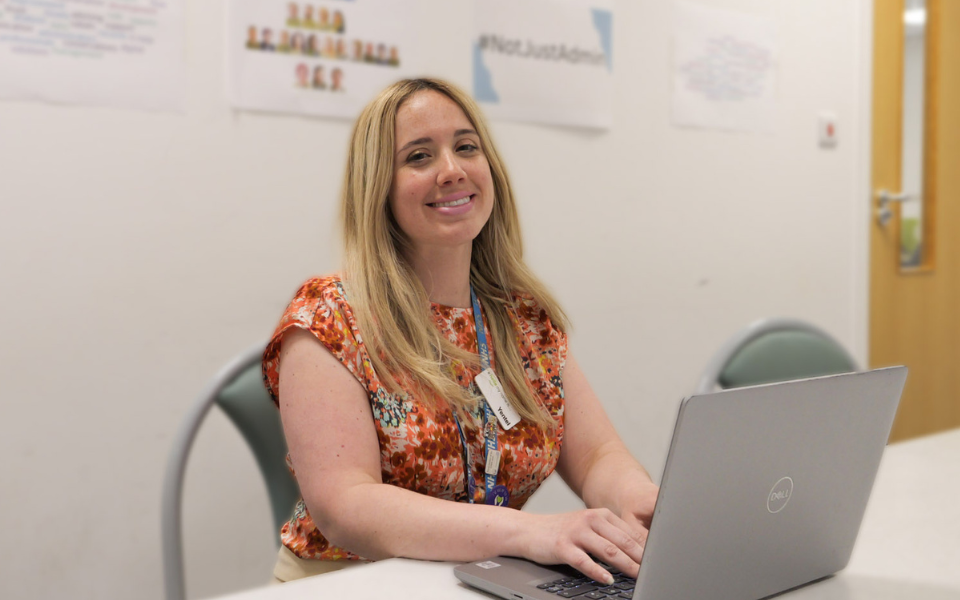
From Sports Coach to NHS Innovator: How Yentel Found Purpose at UHS
More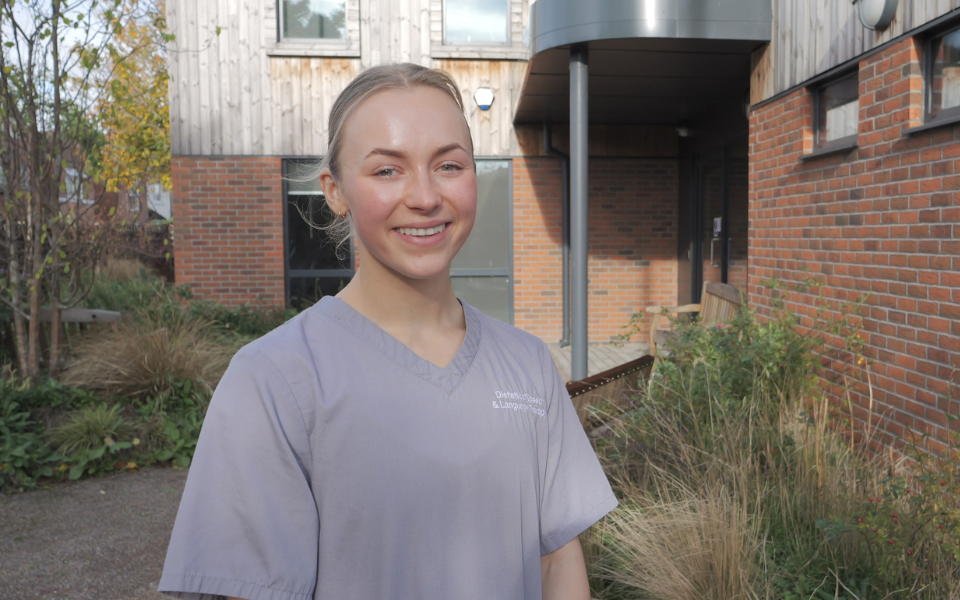
Supporting Newly Qualified Professionals: The Impact of Preceptorship at UHS – Goda’s Story
More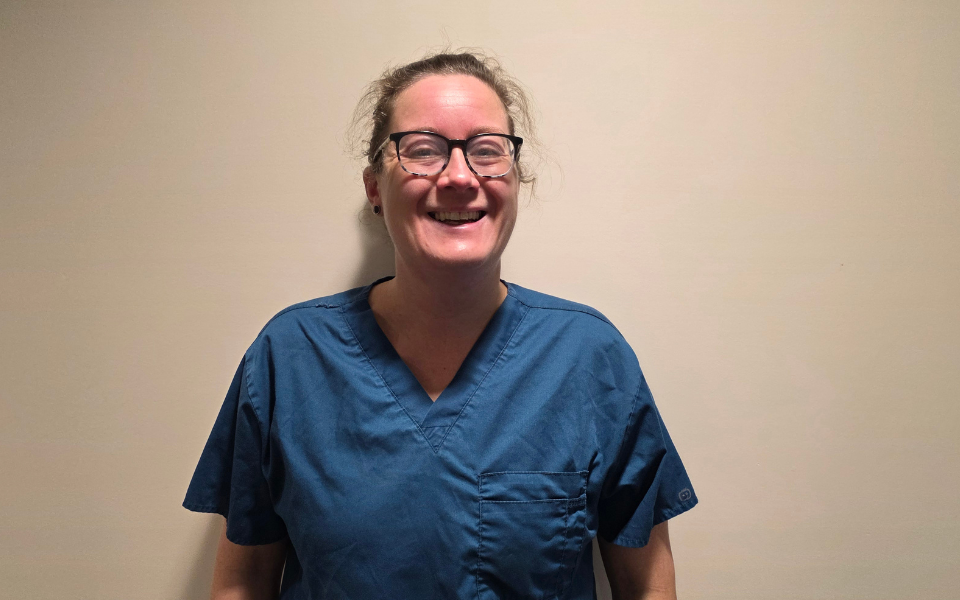
From Childhood Dream to NHS Specialist: Lizzi’s Journey in Pharmacy
More